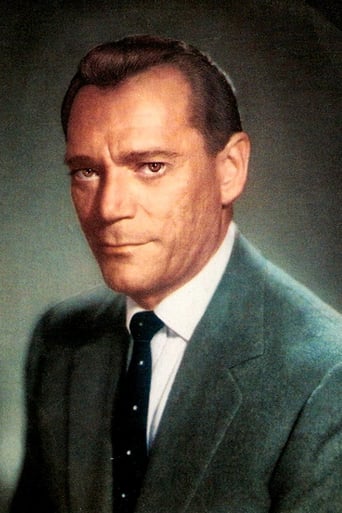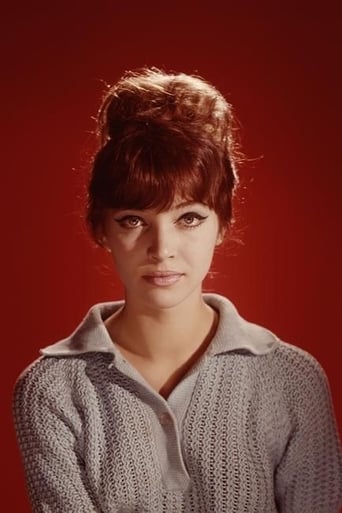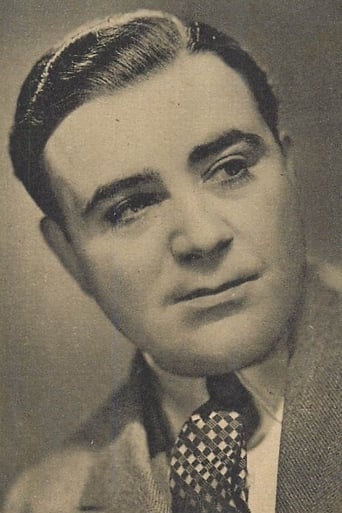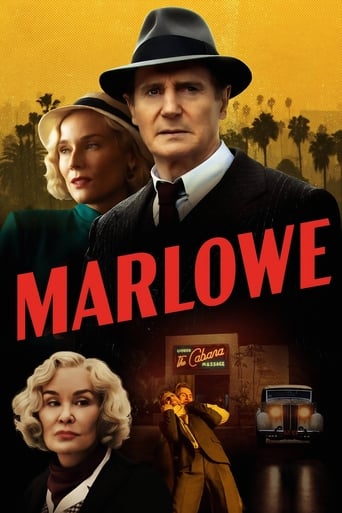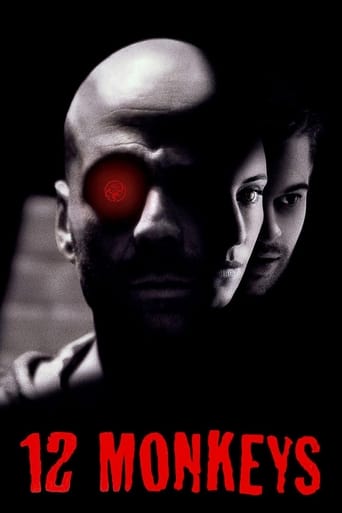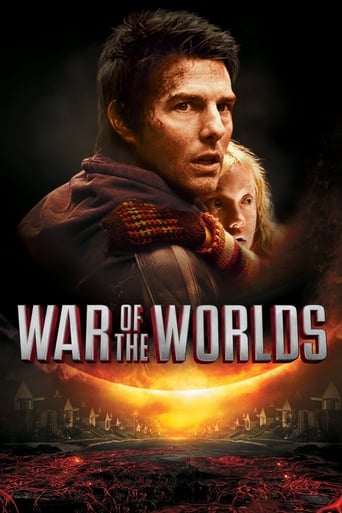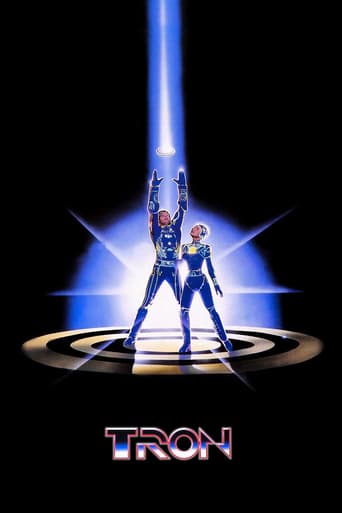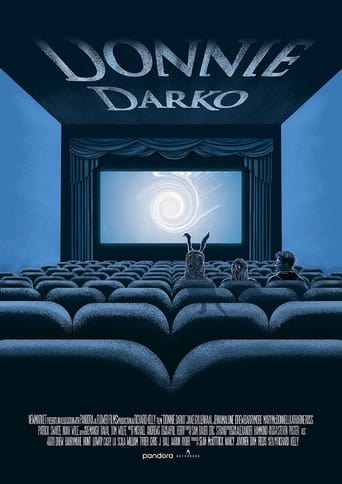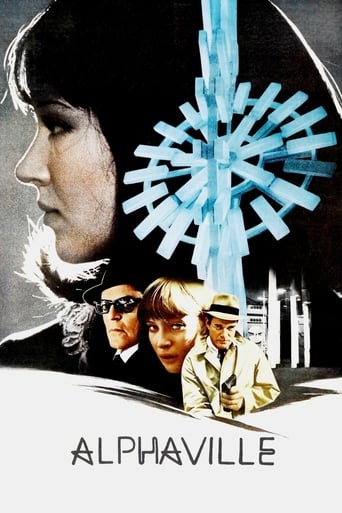
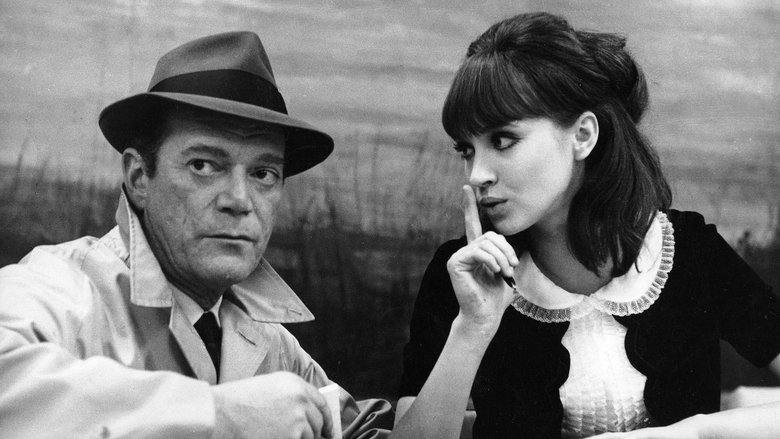
Alphaville (1965)
An American private-eye arrives in Alphaville, a futuristic city on another planet which is ruled by an evil scientist named Von Braun, who has outlawed love and self-expression.
Watch Trailer
Cast


Similar titles
Reviews
Slow pace in the most part of the movie.
Simply Perfect
Just intense enough to provide a much-needed diversion, just lightweight enough to make you forget about it soon after it’s over. It’s not exactly “good,” per se, but it does what it sets out to do in terms of putting us on edge, which makes it … successful?
Amazing worth wacthing. So good. Biased but well made with many good points.
"Something's not in orbit in the capital of this galaxy." Secret Agent Lemmy Caution has the mission of infiltrating the technocratic society of Alphaville, controlled by a supercomputer ordering its citizens through various methods (including violence and indoctrination) to incorporate logic instead of emotion in every part of their everyday lives. Can a riddle of poetry from Caution be the key to undermining this computer, Alpha 60, and halting their plans to obliterate any other "galaxies" (cities, societies) not in line with their "religion of logic"? I have to admit that "Alphaville" isn't one of my personal favorite Godard films, but I see why it is highly regarded. To me, the photography is its greatest asset. Wisely, to make sure that his vision of Alphaville being a futurecity, Godard shoots almost exclusively at night. That the way the architectural design of certain buildings favors possible cities of the future in 1965 on the inside, allowing us not to recognize that Alphaville is just Paris going through "an architectural renaissance" thanks to nighttime photography only emphasizing its windows and brief examinations of certain exteriors of the selected hotels and Alpha 60s "control centers" where Caution visits cleverly allows Godard to get away with a sci-fi film succumbing to noirish sensibilities. That an "outsider" (those who arrive in Alphaville are considered "from the Outlands") can pollute the mechanical operation of life for the people of Alphaville through using intellect (that is the irony of the city's downfall) to inject a virus so that it self-destructs amused me to no end.I just think that a film which shows a society robotic in its movements, ideology, and functions day to day due to the influence of logic, including a hero which really acts and behaves, ironic enough, similarly, without much fire in the direction or plot to energetically show us their defeat—directed in logic, mechanically by Godard—could be a detriment to the message supposedly conveyed: that love and emotion, freedom, are key to us each as individuals, thinking for ourselves, living for ourselves, allowed to dictate our own lives without the need of control over how and *why* we feel and operate as we do. That Alphaville's sheep fall into decline once Alpha 60 is debilitated by Caution's influence (those working in the control center think that Caution can help them defeat the Outside galaxies they're up against), spinning around or clutching to structures, seemingly unable to move or function without *guidance* does comment on the need to be individuals instead of under the control of any higher superior (government? Corporate entity? Religious philosophy?). All we need is love. Love is all we need.Eddie Constantine made a living out of Mike Hammer tough guy noirish anti-heroes, and he doesn't stray from that in Alphaville. He shoots those that threaten him, and in an early scene Lemmy batters an Alpha 60 stooge sent to incapacitate him in his hotel room. He incapacitates another stooge who tries to stab him in an elevator. Another instance, he roughs up yet another Alpha 60 agent, eventually running over his head! As this is a Godard film in the early-to-mid 60s, Anna Karina is a major part of the plot. She's the daughter of the creator of Alpha 60 (Jess Franco alum, Howard Vernon), eventually a romantic love interest of Caution. Caution needs to talk with her father, perhaps kill him if he continues to work in concert with the computer to execute dangerous plans for other "galaxies". Karina could be argued (or agreed) by cineasts as one of the key actresses working in the early 60s in the world. Her work with Godard offers an impressive package of characters, allowing her a lot of freedom and range due to the content and room to improvise. Plus, she always looks fantastic and it never is a surprise the camera worships her. Godard obviously understood what he had with her, even if their relationship was volatile. Their output together, a string of successes that live on to this day, during this period of passion and volatility continues to hold up rather well, even if a product of its time. I won't lie, though, as this is such a clinically, dry, and matter-of-fact approach in its direction, I had a hard time really latching onto it. It is really nice looking, like its lead actress in it. Godard had learned from the masters; the noirish influence is alive and well.
This review is mainly a getting of things off my chest.Firstly - the voice of the computer, Alpha 60 (and what a hugely imaginative name that is!), made me want to kill somebody. The director, most likely. Then I found out from Sometimesaccurateopedia that apparently the voice was that of a post-cancer surgery victim with a mechanical larynx, and I felt guilty: for attacking this man's disability - I still felt fine about killing Jean-Luc Godard for getting him to do the computer's voice.Secondly - the entire dialogue, which purports to expound the 'plot', is a load of wishy-washy rubbish that can't make up its mind if it wants to be solipsist, romantic or humanist, and finally cops out with a resounding crash and settles on 'The Power Of Love Will Save Us All'.Thirdly - the SF is utter garbage. Concepts that were old and hackneyed even in 1964/5, and so many complete absurdities ('galaxies', using 'light-years' incorrectly...) that any science is pushed off stage-left - it must, then, be Art! Even if Alphaville is supposed to be taken as a spoof, it still proves one thing: those with only Arts qualifications should not, ever, attempt Science Fiction.OK, my chest feels lighter.Reading up on this film I've seen it described in so many different ways by those who praise it - as in, literally a couple of dozen different ways - that I now have to conclude something: it's a mess, and nobody really knows what it means - which means that it means... nothing.So - I hereby dump any attempt to analyse it.Instead I will swap to the positive, and say one last thing:It is, truly, beautiful to look at. It's just one, long, B&W, noir scene-experiment - and that's what kept me watching. That, and the surreality of it being set 'out' of time, in an unknown Paris.As a film, Alphaville is rubbish! As a moving object - with the sound off to get rid of the awful music and Alpha 60's nausitating voice - it's gorgeous! - -- ---
The most underrated sci-fi movie ever! I love dystopia histories since I was a kid, then this movie - summed up with the french touch to cinema and the amazing weird camera's positioning from Nouvelle Vague (especially to a sci-fi movie) - has made it one of my favorite movies of all times.And I confess that I was stoked when I found that he used a Borges citation in some scenes. Besides other references to my favorite writer.If I can share a little spoiler there, what most amaze me about Alpha 60 is the dichotomy between doesn't understanding poetry and actually citing them. Such a Borgian plot.Definitely a must watch.
I am really afraid to say anything negative about this film, given the incredibly low level of critique demonstrated by the people here who didn't like it, but...I have never thought that this was anywhere near the best of his '60s films. But I jumped at the chance to see it on the big screen again yesterday. I hoped to revise my opinion. Which I did not.People who do not understand why the Paris of the moment when the film was made is used to represent a future dystopia should be condemned to never watching a film outside of the Mainstream ever again. The point is blindingly obvious: dystopia is all around us. Using music and lighting and camera movement to represent that, rather than relying on triumphantly gaudy and expensive production design, shows that Godard is a filmmaker down to the tips of his toes. He learned so much from the American directors who had no recourse to expensive sets and had to use shadows and fog...I'm thinking of Lang on Man Hunt, Mann on G - Men. Of course, Ulmer on Detour, etc.All this is amazing. And there are great set pieces (the swimming pool, for example). And the use of the same couple of bars of music, over and over, is great, too.Look, I don't need to believe in the relationships and the ideas in Godard films in order to enjoy them. Karina and Constantine was perhaps a very inspired mismatch. And I've read and studied lots of Brecht. But Alphaville just doesn't SWING for me the way most of the others from this time do. But, you know what? I'm going to watch it again.


